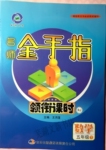题目内容
假定英语课上老师要求同桌之间交换修改作文,请你修改你同桌写的以下作文。文中共有10处语言错误,每句中最多两处。每处错误仅涉及一个单词的增加、删除或修改。增加:在缺词处加一个漏词符号(^),并在其下面写出该加的词。
删除:把多余的词用斜线(\)划掉。
修改:在错的词下画一横线,并在该词下面写出修改后的词。
注意:1.每处错误及其修改均仅限一词;
2.只允许修改10处,多者(从第11处起)不计分。
Three years ago I failed a important exam in my life and became a student in an ordinary school. Disappointing as I felt at the shabby campus and the poorly-equipped classroom, we found the teachers patient and considerate. Besides, I enjoyed the friendly atmosphere on class. I decided to make best of it. I work hard and got along well with my teachers and classmates. Whenever I had difficulties, they were not helpful. Soon , I became one of the top student in my class, which greatly increased my confident and got me motivated.
My experience tells me that it is not what you are given but how you make use of it which determines who you are.
1.a改成an。
2.disappointing改成disappointed
3.we改成I
4.on改成in
5.make和best之间加the
6.work改成worked
7.student改成students
8.去掉not
9.confident改成confidence
10.which改成that
【解析】
1.
2. disappointed过去分词做形容词表状态,感到失望。句意:令我失望的是简陋的校园和研习教室。
3.
4.
5. the best of充分利用;故应加the。句意:我决定充分利用这一点。
6.
7. became one of the top student in my class可知,one of后应接名词复数,故改为stutents。句意:很快我就成为了班上的尖子生。
8.
9.
10. is not…but…that ;My experience tells me that it is not what you are given but how you make use of it which determines who you are.句意:我的经验告诉我,决定你是一个什么样的人的不是你得到什么,而是你怎样利用它。强调句中,how you make use of it为主语;故只能用结构词that引导。
考点:考查对语法知识的掌握。

 名师金手指领衔课时系列答案
名师金手指领衔课时系列答案